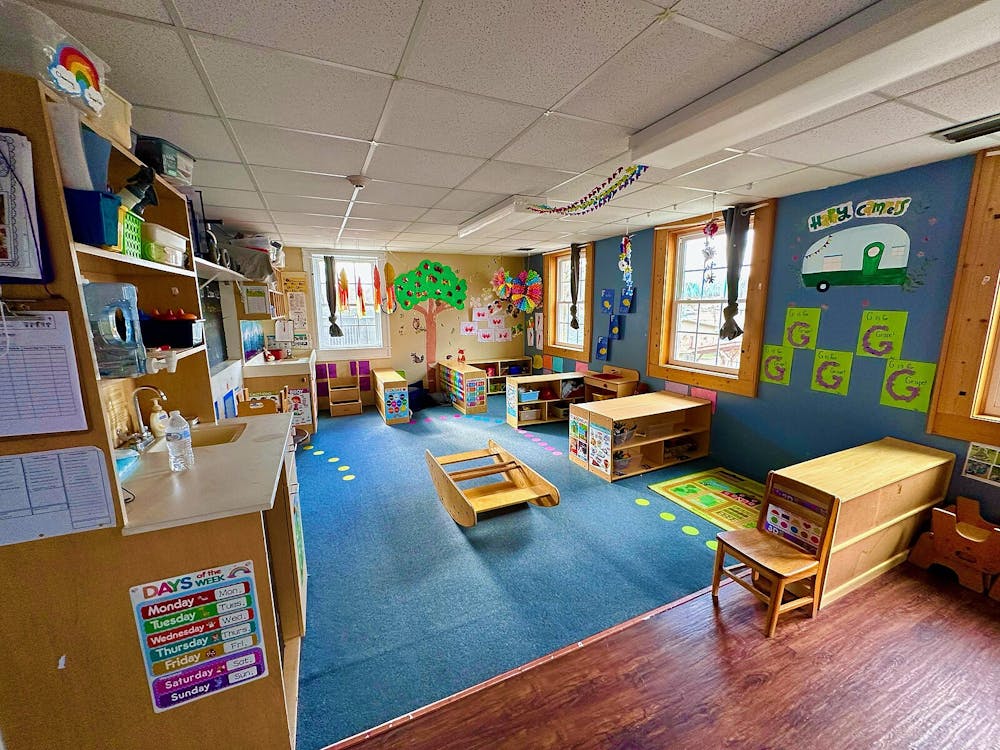The U.S. is a truly exceptional country. After all, the U.S. has the largest economy in the world, the strongest military and is sometimes considered the first modern democracy. There is a dark side to American Exceptionalism, though: The U.S. is one of the worst countries for new parents, as maternity laws and daycare available are painfully far behind the rest of the developed world. This needs to change.
Let’s start with the facts. Currently, the U.S. offers 12 weeks of unpaid (yes, unpaid) leave for parents through the Family and Medical Leave Act. Maternity laws do vary by state, but many have not expanded parental leave beyond this frankly archaic law. Even relatively liberal states offer meager opportunities for paid parental leave: For example, California only provides eight weeks of paid leave at 60-70% of their regular wages.
Compare this to the world at large and the United States’ ‘exceptionalism’ becomes even more striking. The U.S. is only one of seven countries that does not offer any length of paid parental leave (the others being Papua New Guinea and several Pacific island nations). For countries that do offer paid leave, most provide over 14 weeks to mothers. Many European countries, including Germany, Russia and Poland, give mothers over 52 weeks off. Even fathers are compensated in most nations, although their paid leave is often much shorter than that for mothers.
In the richest nation in the world, it is entirely unjustifiable that parents are not offered the basic right to take care of their newborns without risking the loss of income. Allowing parents to take time off work to bond with and nurture their children has numerous health benefits, including (but not limited to) a decrease in infant mortality rates by 3%, lower rates of bloody diarrhea and increased breastfeeding duration. Legislating paid parental leave would help minority households especially: As it stands, Black and Latino parents are far less likely to receive paid leave, so the implementation of this program will help decrease inequity in leave time.
Even economic indicators back up the importance of paid parental leave for the health of the country. Labor force participation among women with young children is higher in countries with more liberal maternity leave laws, as women are able to work even after having children, thanks to continuous employment. In Greece, for instance, a mother could take 43 weeks off work without worrying about her employment. Meanwhile, many mothers in the U.S. are forced to quit, or at least halt, their career ambitions to take care of their babies either temporarily or to become stay-at-home mothers. Increases in labor force participation also lead to lower job turnover rates, which actually helps businesses increase productivity and lower new employee recruitment and training costs.
Following the maternity period, American families must grapple with another issue: daycare, and how to afford it in today’s economy. Once again, the U.S. lags behind other countries, as there is no universal daycare legislation in the country. Outside of the Head Start program for those with sufficiently low income, daycare remains costly, and indeed unaffordable, for millions of Americans. Among the 41 highest-income countries in the world, the U.S. ranks second to last overall in childcare, including abysmal scores in affordability, access and leave — although quality is a somewhat respectable 15th. Evidently, the U.S. has an education problem, not only with the cost of college but with daycare for the country’s youth.
Free daycare has numerous, and staggering, positive effects. Most importantly, it significantly increases educational opportunities for children during formative stages of their lives. Children enrolled in daycare from the age of four are more likely to attend college, which in turn increases lifetime income prospects and would help raise many out of poverty. Making daycare free would benefit all American parents by decreasing stress surrounding the decision to enroll their children in costly daycares or stay home with them.
Action needs to be taken now; and hopefully, it is (finally) coming. President Joe Biden recently announced his plans for 12 weeks of paid parental leave and free universal preschool in his 2024 budget proposal. Whether this legislation is feasible at the moment, especially considering the divided Congress, is another story, but it is heartening to see that politicians are taking this issue seriously. As this issue enters the public discourse, politicians may finally take heed of this incredible injustice and take steps to improve American standards for helping parents and its youth.
Free universal preschool and paid parental leave should be implemented on the national level. Unfortunately, leaving the legislation to states allows for incredible disparities between regions. One need only look at minimum wage laws, which range from $5.15 an hour in Georgia to $16 in California. Allowing states to create their own regulations and determine eligibility would inevitably lead to inequality and uneven results. It is important that the federal government pass meaningful legislation to support the nation’s families.
No parent should fear losing their job due to taking time off to raise their child, and no child should be kept from a head start on their education because of a hefty attendance fee. Amid a time of incredible polarization and fiery political rhetoric, this is an issue that can hopefully bring people together. The entire country must reckon with its outdated and unjust healthcare systems to make meaningful change. Only then can America be truly exceptional.
Nick Daum is a freshman from Bethesda, Md. majoring in Economics and Applied Math and Statistics. He is a News Editor for The News-Letter.





